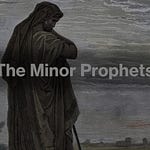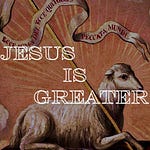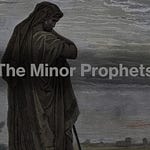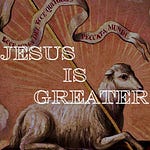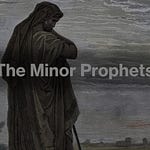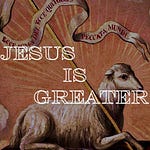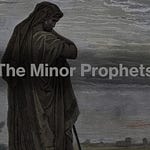The purpose of this basics series is to introduce a new Christian, or someone exploring Christianity, to the foundational components of faith. Our order so far has been intentionally plodding towards this ideal. The movement of thought is from what God’s word is, to what it says about God, to what it says about Christ. If you want to catch up on those previous posts, you can see them here. In this installment, we move to consider what God’s word says about humanity.
Every person walks around with their worldview lenses on, perceiving all things through those lenses, and every worldview has something to say about human life. While Christianity may often be seen as outdated, restrictive, and generally quirky, it has provided the moral foundation for the entirety of the western world. In this post, I will show from Scripture the basics of what God says about humanity.
Prelude to the Psalm
Most of this discussion will come out of Psalm 90, but I would be remiss if I did not briefly note the reality of death as a background to this Psalm. Moses was the prophet of God to Israel, the one who led them out of captivity and ministered to them during their wilderness wanderings. He writes Psalm 90, which reflects on the accumulated wisdom of those years. Moses was with Israel as he watched a whole generation die in the wilderness, sometimes thousands of Israelites in a single day. All of that death happens as a result of the fall.
The Bible is clear that in Genesis 1–2, there is no death, but after the fall in Genesis 3:19 God says, “For you are dust, and to dust you shall return.” This is likely the background for Moses saying in Psalm 90:2, “You return man to dust.” Paul says as much in Romans 5:12, “sin came into the world through one man, and death through sin, and so death spread to all men because all sinned.”
Creatures of the Creator
It is important to distinguish the consequences of the fall that all men experience now (death/decay/sickness) from those things which mankind was created with innately (creaturely limitations). When we are resurrected on the last day, we do not become gods, we become glorified humans! So we will still have physical bodies and many of the limitations we currently experience. Likely we will have to learn, eat, drink water, and walk places. These limits are good for us because, after all, we are creatures.
Psalm 90:2–3
Before the mountains were brought forth,
or ever you had formed the earth and the world,
from everlasting to everlasting you are God.
You return man to dust
and say, “Return, O children of man!”
For a thousand years in your sight
are but as yesterday when it is past,
or as a watch in the night.
A primary distinction in Christian theology is that God is unlike his creation. Some mythologies capture an idea of the gods being on a spectrum with humanity. That is to say that the gods are human in their inclinations, limited knowledge, and impulsiveness (think of Zeus). However, the gods in this system are set apart by their lifespan and power. Christian theology says that God cannot rightly be put on any kind of continuum with his creatures.
You see this idea in the Psalm, “Before the mountains were brought forth...you are God.” The Lord is not a creature, he exists apart from creation and is thus rightly called God. Humanity is on the other side of this divide. We are creatures. And as creatures, we are not only subject to the rest of God’s creation but also God’s sovereign will. Moses says that God is the one who orders life and death, “You return man to dust.”
This reality leads Christians to one consistent habit—prayer. We are creatures in a dangerous world. Walk outside in the middle of an Indiana winter and tell me that you don’t feel subject to the whims of the cold weather. Our power in this world is limited. Other cars on the road cut us off sometimes when we are driving. We have difficulty getting our co-workers to work with us in harmony. If you have ever had the misfortune of doing a group project, you know how limited your ability is to get other people to do what you ask. Just think of how many things in your life right now might feel well beyond your control. Regularly seeing our weaknesses gives us a sense of our need for God’s help. It leads us to prayer. Kelly Kapic said, “Those who do not sense their vulnerability rarely pray; those who cultivate an awareness of it have a hard time not praying.”1
So Christians embrace God’s creative genius when we acknowledge that we are creatures and not gods ourselves. After all, everything else on earth and in the universe reminds us incessantly that we are, in the end, not the main character.
Limited by Design
We also recognize God’s creative genius is not only evident in the fact that we are creatures, but we are created with purpose by God. That means that we should not rebel against those natural limitations which are good for us to embrace. This rebellion can be subtle, thinking we do not need sleep to function well, and it can be more blatant, as when a man says to the rest of society, “I am now a woman despite the body and DNA that God has given me.”
To some extent we can reshape our own identity, but by no means is this infinitely malleable. After all, making a career change because you are unhappy in your job is of a different order than making a gender change because you are unhappy. Carl Trueman observes that the Bible and modern culture are on a collision course, “The modern cultural imagination sees the world as raw material to be shaped by the human will.”2 The issue with this is fundamental. Which will gets to decide on reality—God’s will or man’s will?
Suppose for a moment we embrace the idea that human wills are collectively shaping the world. What is the raw material in our world? Are other humans considered part of this raw material? And if they are, doesn’t that mean you and I are subject to whoever’s will is stronger than our own? Allow me to suggest here that it is good to be subject to an all-powerful will that is personal, benevolent, and merciful.
The Bible is a bit more simple about our limitations. We are not the wills that subject others to ourselves, but God’s will subjects all things to himself. Christians are called to submit themselves to God’s will. Whereas the world offers freedom through rebellion, Christ offers freedom through obedience, namely his own obedience.
Valuable Beyond Measure
The question of human value, dignity, and worth is the question everyone is interested in. It is the brass tacks of any worldview. This is where the Christian worldview does what few other worldviews can do. It asserts that humans are valuable, and gives reasons that are not subjective. For that, we must return to the Psalm.
Psalm 90:13–17
Return, O Lord! How long?
Have pity on your servants!
Satisfy us in the morning with your steadfast love,
that we may rejoice and be glad all our days.
Make us glad for as many days as you have afflicted us,
and for as many years as we have seen evil.
Let your work be shown to your servants,
and your glorious power to their children.
Let the favor of the Lord our God be upon us,
and establish the work of our hands upon us;
yes, establish the work of our hands!
Yes, we are creatures. Yes, we are limited. Yes, we do rebel against God’s good design because of humanity’s fall (more on that when we talk about Salvation). But, God is merciful!
Moses calls God to return, to make the people glad, to satisfy them with his steadfast love, and to bless them with his favor. He knows two truths about mankind that all Christians must know as well. We are created beings, not divine, and not worthy of worship. And, at the same time, we have been made valuable beyond all measure by the God who made reality. God says. “Let there be light” and light finds a way to obey. This same God created man in his own image—instantiating value into humanity that no law, bill, vote, or decree can rescind. This same God sent his son to take on humanity’s fallenness and rescue them from the power of death.
So then the Christian worldview is not just that humanity is a creature, but a glorious and valuable creature by God’s will. He appointed us to be respected, loved, and cared for. It is this value that every human has that has caused Christian thinkers to rightly affirm human dignity at conception, pursue the abolition of slavery, minister to the outcast of society, and go into all the world to preach the good news that Jesus has risen from the grave to save us from sin and death. Christian, you should love this truth and live your life, seeking always to love your neighbor as yourself.
Singing His Praise
Even in this short look at God’s word, we get a sense of his goodness. Our days are filled with toil (Psalm 90:10) and yet God shows his people favor by blessing them. So then this Psalm of Moses is rightly sung by Israel as they wander the wilderness, and in the generations after when they rest more comfortably in the promised land. It brings us back to an honest look at the world, our place in it, and all things in relation to God. So we pray and sing along with Moses, the Israelites, the early Church, and the Church throughout the ages, “Let the favor of the Lord our God be upon us, and establish the work of our hands upon us; yes, establish the work of our hands!”
Discussion Questions
How do non-Christian worldviews account for human value, dignity, and worth? Which worldviews affirm this truth? Which deny it?
Do you live your life honoring God’s creation by loving other humans well?
Have you considered your own value as being immeasurable because of God’s will?
How else does the Bible discuss the relationship between sin and death? What is the solution to death as proposed by Scripture?
Kelly M. Kapic, You’re Only Human: How Your Limits Reflect God’s Design and Why That’s Good News (Grand Rapids, Michigan: Brazos Press, a division of Baker Publishing Group, 2022), 202.
Carl R. Trueman and Ryan T. Anderson, Strange New World: How Thinkers and Activists Redefined Identity and Sparked the Sexual Revolution(Wheaton, Illinois: Crossway, 2022), 95.





